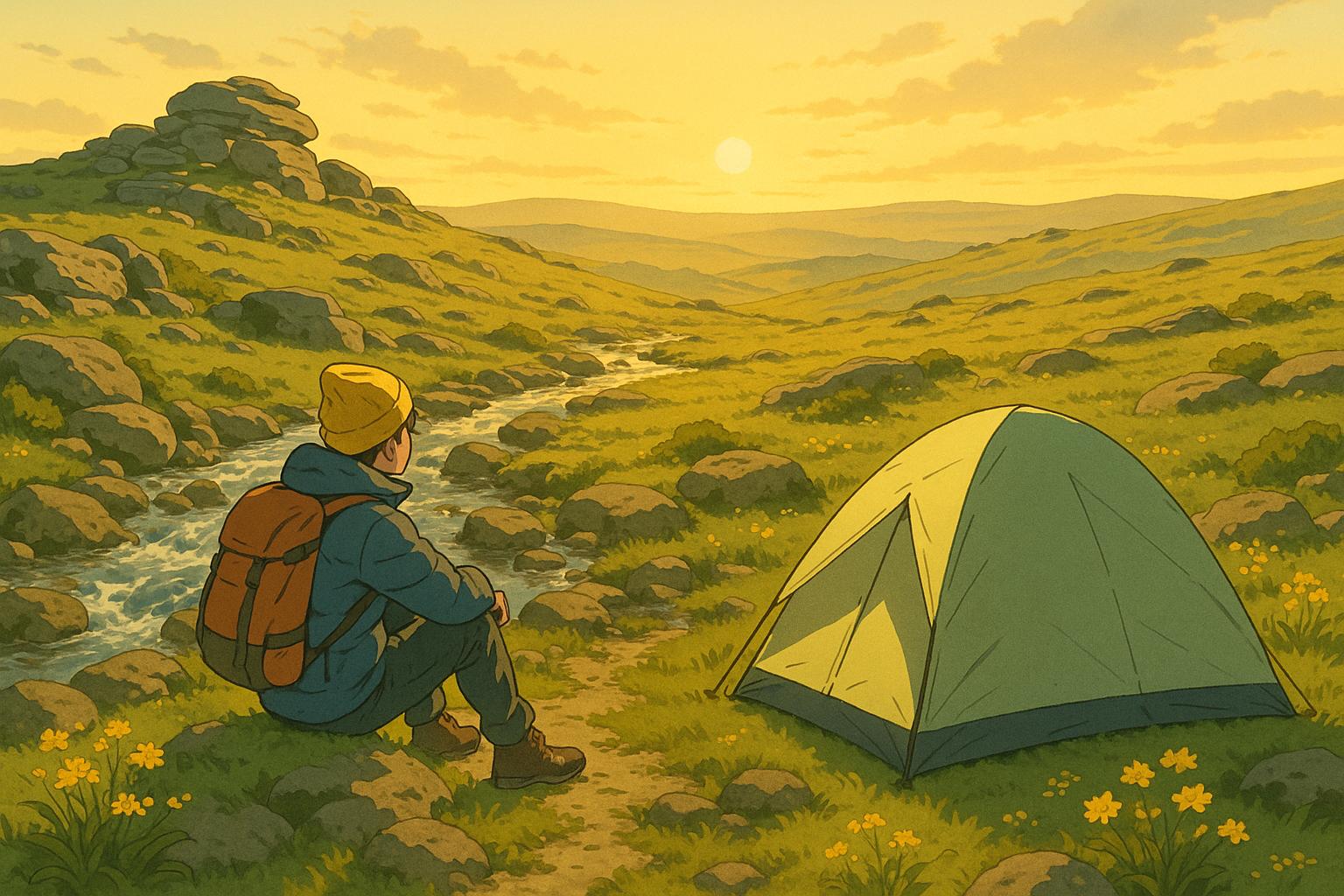Gentle bird song and the soothing sound of water flowing over boulders greet those who choose to wake at dawn on Dartmoor. The pale-yellow light of early spring casts a warm glow over the expansive, rugged terrain, encompassing not only solitude but also moments of profound peace and blissful contentment. For many, these experiences in nature are priceless; however, they have faced challenges due to legal tussles concerning wild camping rights.
The recent landmark ruling by the Supreme Court is a significant victory for outdoor enthusiasts. The court decided against the arguments posed by Alexander and Diana Darwall, who claimed that wild camping was detrimental to their conservation efforts and posed risks to livestock on their sprawling estate. The judges determined that the Dartmoor Commons Act of 1985 encompasses a broader definition of "open-air recreation," including wild camping, thus allowing this cherished practice to continue unimpeded.
This decisive ruling ensures that Dartmoor retains its unique position in England as the only area where wild camping can occur without requiring the landowner's permission. This exceptional right has become a focal point for those advocating for greater public access to natural spaces across the country. The contrast with Scotland, where wild camping is largely unrestricted so long as campers avoid enclosed land, highlights the need for reform in England, where outdoor enthusiasts must often navigate a patchwork of restrictions.
Campaigners are optimistic that the court's ruling will inspire a shift in policy, especially within Labour, who have proposed extending the right to roam over all English national parks. Such an expansion could significantly increase public access to nature, providing more opportunities for recreation and connection with the outdoors. The Dartmoor case exemplifies a growing recognition of the importance of public access to natural heritage, a principle that dates back to the post-war period when national parks were established to offer escape and recreation to a public emerging from the devastation of war.
As the sunlight bathes the steep, tussock-clad valleys, hikers often find themselves experiencing a sense of exhilaration that commercial camping sites cannot replicate. The absence of facilities fosters a deeper connection to nature, where campers must adhere to the principles of "Leave No Trace," leaving the environment unburdened by human presence. While some reports have highlighted irresponsible camping practices, the wider challenge of environmental conservation is often exacerbated by certain landowners who neglect ecological responsibilities.
Indeed, Dartmoor faces pressing environmental issues, such as overgrazing, particularly by sheep, which threatens local biodiversity. This reality underscores the calls for responsible stewardship of land on both sides of the debate. While fly camping—where large groups leave behind waste—has emerged as a concern during the pandemic, it pales in comparison to the broader ecological challenges driven by intensive land management practices.
Referring to the resilience of public sentiment in favour of wild camping, past protests in response to initial court decisions illustrate the collective demand for access rights. The thousands who rallied to defend the right to wild camp represent a significant movement advocating for outdoor freedom. Their collective efforts had at last culminated in the Supreme Court's favourable decision, ensuring that Dartmoor’s wild spaces remain accessible to all.
In an era where nature is increasingly threatened, the ruling is not merely a victory for wild campers; it signals a deeper societal shift towards valuing and protecting natural spaces for generations to come. For those who venture into Dartmoor's moorland, rivers, and woodlands, the experience is one of freedom and adventure, offering a refreshing embrace of the wild.
📌 Reference Map:
- Paragraph 1 – [1], [3]
- Paragraph 2 – [1], [2], [4]
- Paragraph 3 – [5], [6]
- Paragraph 4 – [1], [7]
- Paragraph 5 – [1], [2], [4]
- Paragraph 6 – [1], [2], [5]
- Paragraph 7 – [3], [6]
Source: Noah Wire Services
